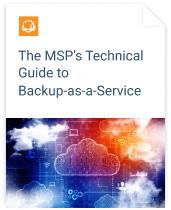Nowadays everyone in managed services space knows that MSP is a better operating than break/fix or on-demand. But why actually? Let's find out.
The ‘Break/Fix’ Operating Model
As the name suggests, break/fix services are representative of a fee-for-service method where an IT service provider ventures into the customer’s environment to fix something when it breaks. Break/fix maintenance services also comprise of repairs, upgrade and installations that are only performed when needed. Once the job is finished, the IT shop or consultant bills the customer for the tasks performed.
The ‘On-Demand’ Operating Model
The on-demand operating model for IT shops and consultants is often confused with the break/fix maintenance works even though they are two distinct systems. On-demand IT services essentially put the ball in the customer’s court. This means that it depends entirely upon the discretion of a client to call an IT shop for fixing an issue that they have been experiencing. In case of an on-demand model, it is possible that the customer’s issue maybe prevailing for a long period which is not the same as a break/fix environment where IT solutions are offered to effectively address problems as soon as they emerge.
The ‘MSP’ Operating Model
A managed service operating model is the modern-day substitute for on-demand and break/fix frameworks. The premise of this system is based on recurring revenue under which a managed service provider (MSP) and the client work in accordance with a service level agreement (SLA) or a master service agreement (MSA). The client is expected to pay a fixed price for receiving IT services as per the contract while covering all additional expenses in case they also obtain services which are not covered within the agreement.
Choosing Managed Services – A Win-Win Situation
Operating as an IT shop or consultant while abiding by the principles of break/fix and on-demand operating models brings a number of drawbacks with itself. First and foremost, both these systems are not stable in terms of generating sufficient revenue to safeguard the future of a business. Offering break/fix services or working on-demand makes an IT service provider highly dependent upon the client rather than making a stable income for a specific timeframe as stipulated in a contract such as SLA or MSA.
By working on a break/fix or on-demand basis consultants cannot predict the future of the business as it can become rather volatile. One month could prove to be very profitable for an IT service provider while the next month could bring in few or even zero customer requests which can get frustrating especially when a business is trying to grow and strategize its way forward.
Moreover, entering into an agreement with a managed service provider (MSP) offers a sense of security for the client as well. The service level agreement covers a number of aspects such as the scope of services, performance management metrics, warranties, and pricing. Once the service provider and a customer mutually agree upon these terms, the latter can be assured of the fact that they would not have to bear any significant price escalations due to unforeseen circumstances or unexpected situations. As the market for MSPs is cut-throat, customers can also evaluate average MSP pricing and select the most suitable option.
‘Managed Services’ Operating Model – One Size Fits All
Being a part of the on-demand services market and break/fix environment cannot shield an IT services provider or consultant from the cloud of uncertainty and insecurity. A managed service operating model represents a systematic approach towards managing a business in the contemporary IT arena because it safeguards the future of a firm. Once a managed service provider (MSP) has several clients onboard, they can participate in effective planning and budgeting to drive the business towards success.
IT services that operate in accordance with this model are likely to function in a more structured manner which reinforces clients’ trust in their ability to deliver the desired results. Moreover, being the foundation of MSP operations, the SLA ensures that both parties are fully aware of their designated roles and responsibilities which they must fulfill in order to achieve mutual success.







